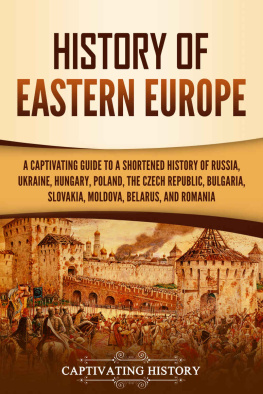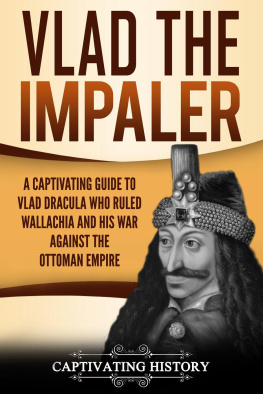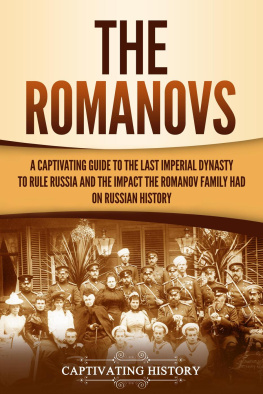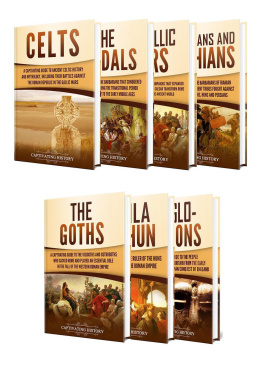Captivating History - Opium Wars: A Captivating Guide to the First and Second Opium War and the History of the Qing Dynasty
Here you can read online Captivating History - Opium Wars: A Captivating Guide to the First and Second Opium War and the History of the Qing Dynasty full text of the book (entire story) in english for free. Download pdf and epub, get meaning, cover and reviews about this ebook. year: 2020, genre: History. Description of the work, (preface) as well as reviews are available. Best literature library LitArk.com created for fans of good reading and offers a wide selection of genres:
Romance novel
Science fiction
Adventure
Detective
Science
History
Home and family
Prose
Art
Politics
Computer
Non-fiction
Religion
Business
Children
Humor
Choose a favorite category and find really read worthwhile books. Enjoy immersion in the world of imagination, feel the emotions of the characters or learn something new for yourself, make an fascinating discovery.

- Book:Opium Wars: A Captivating Guide to the First and Second Opium War and the History of the Qing Dynasty
- Author:
- Genre:
- Year:2020
- Rating:4 / 5
- Favourites:Add to favourites
- Your mark:
- 80
- 1
- 2
- 3
- 4
- 5
Opium Wars: A Captivating Guide to the First and Second Opium War and the History of the Qing Dynasty: summary, description and annotation
We offer to read an annotation, description, summary or preface (depends on what the author of the book "Opium Wars: A Captivating Guide to the First and Second Opium War and the History of the Qing Dynasty" wrote himself). If you haven't found the necessary information about the book — write in the comments, we will try to find it.
Captivating History: author's other books
Who wrote Opium Wars: A Captivating Guide to the First and Second Opium War and the History of the Qing Dynasty? Find out the surname, the name of the author of the book and a list of all author's works by series.
Opium Wars: A Captivating Guide to the First and Second Opium War and the History of the Qing Dynasty — read online for free the complete book (whole text) full work
Below is the text of the book, divided by pages. System saving the place of the last page read, allows you to conveniently read the book "Opium Wars: A Captivating Guide to the First and Second Opium War and the History of the Qing Dynasty" online for free, without having to search again every time where you left off. Put a bookmark, and you can go to the page where you finished reading at any time.
Font size:
Interval:
Bookmark:
Opium Wars
A Captivating Guide to the First and Second Opium War and the History of the Qing Dynasty
Copyright 2020
All Rights Reserved. No part of this book may be reproduced in any form without permission in writing from the author. Reviewers may quote brief passages in reviews.
Disclaimer: No part of this publication may be reproduced or transmitted in any form or by any means, mechanical or electronic, including photocopying or recording, or by any information storage and retrieval system, or transmitted by email without permission in writing from the publisher.
While all attempts have been made to verify the information provided in this publication, neither the author nor the publisher assumes any responsibility for errors, omissions or contrary interpretations of the subject matter herein.
This book is for entertainment purposes only. The views expressed are those of the author alone, and should not be taken as expert instruction or commands. The reader is responsible for his or her own actions.
Adherence to all applicable laws and regulations, including international, federal, state and local laws governing professional licensing, business practices, advertising and all other aspects of doing business in the US, Canada, UK or any other jurisdiction is the sole responsibility of the purchaser or reader.
Neither the author nor the publisher assumes any responsibility or liability whatsoever on the behalf of the purchaser or reader of these materials. Any perceived slight of any individual or organization is purely unintentional.
Free Bonus from Captivating History: History Ebook
Hi History Lovers!
My name is Matt Clayton, and Im the creator of Captivating History. First off, I want to THANK YOU for reading our books in the Captivating History series. As an avid reader of History myself, I aim to produce books that will hold you captive.
Now you have a chance to join our exclusive history list so you can get the ebook below for free as well as discounts and a potential to get more history books for free! Simply click the link below to join.
P.S. If you join now, you will also receive a free Mythology book. Remember that its 100% free to join the list.

Click here to access your bonus
Also, make sure to follow us on:
Twitter: @Captivhistory
Facebook: Captivating History: @captivatinghistory
Youtube: Captivating History
Table of Contents
Part 1: The Opium Wars

Introduction
Victorian Great Britain was the most technologically and economically developed country in the world at the time. As such, it had the power to protect its interests. With the discovery of new trade routes in the East, and with the foundation of the East India Company, Britain became addicted to the luxurious and exotic items from China. Silk, porcelain, and tea were in high demand among the rich. Britain was so economically strong at the time that even the middle and lower classes could afford to enjoy high-quality items imported from China, especially tea.
Britain imported everything its society desired, but it was costly. The main problem was that China only accepted payments in silver, creating a huge imbalance in trade. To avoid losing money on imported goods, Britain had to sell something back to China. However, this Eastern empire liked to boast that it was self-sufficient. The Chinese didnt need to import anything, as their industry was developed enough to supply the whole country with what it needed. Britain had to come up with something the Chinese needed, and in desperation, the decision was made for Britain to sell opium.
With rich poppy plantations in Britains Indian possessions, opium was abundant. It was banned in Great Britain, except when diluted in red wine in very small amounts and prescribed by doctors in the form of laudanum. Since they could not sell the drug back home, British opium merchants needed a new market. There were no better experimental grounds than China, which was just opening up to foreign trade. When diplomatic efforts to introduce opium to the Chinese market failed, the British Parliament approved an alternative: war.
There were two wars, one from 1839 to 1842 and another from 1856 to 1860. They are collectively known as the Opium Wars. The British, who were joined by French and supported by the Americans and Russians, clashed with Imperial China, which was ruled by the Qing dynasty. These conflicts are largely forgotten in the Western world, perhaps out of a sense of collective shame. But in China, the Opium Wars are still symbols of national humiliation at the hands of the Western powers.
For over 4,000 years, China believed itself to be the pinnacle of civilization, regarding other nations as barbarians who were not worthy of the imperial presence of their Son of Heaven, the emperor. As such, Chinas feelings of superiority often halted its diplomacy. Since the nation was stuck in tradition, it was doomed to suffer the inadequate political decisions of their emperor and his advisors. Xenophobia reached extremes when foreigners were prohibited from entering the country. Instead of opening up to other nations and learning from them, China decided to close its borders and not allow the outside world to taint their sacred society. Although the moral blame for the Opium Wars lies with Britain, the ideological blame is on China. Perhaps through less strict diplomacy, it could have found common grounds with the Western world and avoided the devastating effects of both the drug and the war.
Even though the Opium Wars were fought a century and a half ago, to modern readers, the events might seem quite contemporary. They represent a narrative that perfectly describes colonialism, which is defined by greed, power, corruption, racism, and the collective madness of a nation. The Opium Wars are a reminder for the future, as they perfectly describe what happens when two different worlds clash. The events in this book can only serve to teach us of humility, selflessness, and compassion. At the heart of the Opium Wars is the international drug trade, which we still fight even today.
Chapter 1 Prelude - The Red Barbarians

George Macartney, 1 st Earl Macartney
(https://en.wikipedia.org/wiki/George_Macartney,_1st_Earl_Macartney#/media/File:George_Macartney,_1st_Earl_Macartney_by_Lemuel_Francis_Abbott.jpg)
The First Opium War began in 1839, but the first shots were fired much earlier. The trade agreement with Imperial China meant the opening of a huge market to a certain country. The custom was, out of respect, that all delegations had to bow to the Chinese emperor. However, the British delegation refused to perform this traditional act, known as kowtow in the Mandarin dialect. The main diplomat of the British delegation was Lord George Macartney, a person who managed to raise himself from the poverty of Ireland and enter the Foreign Service. He built his reputation and was known as a diplomat who got things done. However, China was a challenge for him.
China was culturally different from 19 th -century Europe. It remains unique even today, although the differences between these modern nations are greatly lessened. Macartney arrived in China in 1793 with the task of opening up a British embassy in the capital. From there, he was to continue his diplomatic mission and persuade the Chinese emperor to allow British ships to dock in Canton and establish trade. To speed up the process, Macartney was permitted to promise the end of the opium imports from British India. In Imperial China, opium was already banned, but it was impossible to stop it from entering the empire. It was even more impossible to control the people who enjoyed it.
Font size:
Interval:
Bookmark:
Similar books «Opium Wars: A Captivating Guide to the First and Second Opium War and the History of the Qing Dynasty»
Look at similar books to Opium Wars: A Captivating Guide to the First and Second Opium War and the History of the Qing Dynasty. We have selected literature similar in name and meaning in the hope of providing readers with more options to find new, interesting, not yet read works.
Discussion, reviews of the book Opium Wars: A Captivating Guide to the First and Second Opium War and the History of the Qing Dynasty and just readers' own opinions. Leave your comments, write what you think about the work, its meaning or the main characters. Specify what exactly you liked and what you didn't like, and why you think so.










